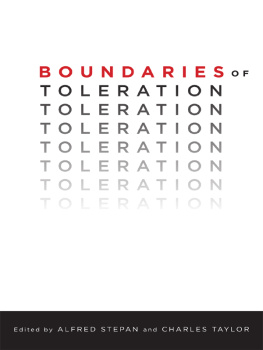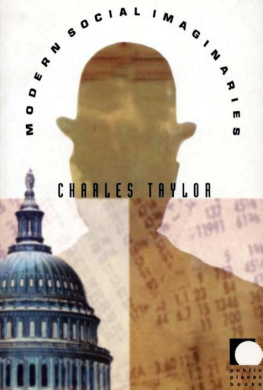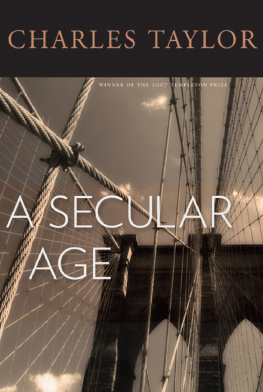Taylor - The malaise of modernity
Here you can read online Taylor - The malaise of modernity full text of the book (entire story) in english for free. Download pdf and epub, get meaning, cover and reviews about this ebook. City: Concord, Ont, year: 1991, 1992, publisher: House of Anansi Press, genre: Religion. Description of the work, (preface) as well as reviews are available. Best literature library LitArk.com created for fans of good reading and offers a wide selection of genres:
Romance novel
Science fiction
Adventure
Detective
Science
History
Home and family
Prose
Art
Politics
Computer
Non-fiction
Religion
Business
Children
Humor
Choose a favorite category and find really read worthwhile books. Enjoy immersion in the world of imagination, feel the emotions of the characters or learn something new for yourself, make an fascinating discovery.

The malaise of modernity: summary, description and annotation
We offer to read an annotation, description, summary or preface (depends on what the author of the book "The malaise of modernity" wrote himself). If you haven't found the necessary information about the book — write in the comments, we will try to find it.
The malaise of modernity — read online for free the complete book (whole text) full work
Below is the text of the book, divided by pages. System saving the place of the last page read, allows you to conveniently read the book "The malaise of modernity" online for free, without having to search again every time where you left off. Put a bookmark, and you can go to the page where you finished reading at any time.
Font size:
Interval:
Bookmark:
The Massey Lectures Series
The Massey Lectures are co-sponsored by CBC Radio, House of Anansi Press, and Massey College in the University of Toronto. The series was created in honour of the Right Honourable Vincent Massey, former governor general of Canada, and was inaugurated in 1961 to provide a forum on radio where major contemporary thinkers could address important issues of our time.
This book comprises the 1991 Massey Lectures, "The Malaise of Modernity," broadcast in November 1991 as part of CBC Radio's Ideas series. The producer of the series was David Cayley; the executive producer was Bernie Lucht.
Charles Taylor
Charles Taylor is an award-winning philosopher, academic, writer, and critic of modernity. He is a Rhodes Scholar, former Chicele Professor of Moral Philosophy at Oxford University, emeritus professor of philosophy at McGill University, and Board of Trustees Professor of Law and Philosophy at Northwestern University. In 1992 Taylor was awarded the Prix Lon-Gerin in the category of social sciences for the Prix du Quebec the highest honour given for contributions to Quebec intellectual society by the provincial government. In 2000 he was made a Grand Officer of the National Order of Quebec. Professor Taylor is also a fellow of the Royal Society of Canada and of the British Academy, a Companion of the Order of Canada, and a member of the American Academy of Arts & Sciences. His books include Hegel, Philosophical Papers, The Politics of Recognition, Modern Social Imaginaries, and the seminal Sources of the Self, which established Taylor as one of modern philosophy's leading thinkers.
CHARLES TAYLOR

Copyright 1991 Charles Taylor and the Canadian Broadcasting Corporation
All rights reserved. No part of this publication may be reproduced or transmitted in any form or by any means, electronic or mechanical, including photocopying, recording, or any information storage and retrieval system, without permission in writing from the publisher.
First published in 1991 by House of Anansi Press Ltd.
This edition published in 2003 by
House of Anansi Press Inc.
110 Spadina Avenue, Suite 801
Toronto, ON, M5V 2K4
Tel. 416-363-4343
Fax 416-363-1017
www.anansi.ca
Distributed in Canada by
HarperCollins Canada Ltd.
1995 Markham Road
Scarborough, ON, M1B 5M8
Toll free tel. 1-800-387-0117
CBC and Massey College logos used with permission
House of Anansi Press is committed to protecting our natural environment. As part of our efforts, this book is printed on Rolland Enviro paper: it contains 100% post-consumer recycled fibres, is acid-free, and is processed chlorine-free.
10 09 08 07 06 9 10 11 12 13
LIBRARY AND ARCHIVES CANADA CATALOGUING IN PUBLICATION DATA
Taylor, Charles, 1931
The malaise of modernity
(CBC Massey lectures series; 1991)
ISBN-13: 978-0-88784-520-8
ISBN-10: 0-88784-520-7
1. Self (Philosophy). 2. Civilization, Modern.
3. Philosophy, Modern. 4. Ethics.
I. Title. II. Series
BD450T38 1992 126 C91-095689-8
Cover design: Bill Douglas at The Bang
Typesetting: Tony Gordon Ltd.

We acknowledge for their financial support of our publishing program the Canada Council for the Arts, the Ontario Arts Council, and the Government of Canada through the Book Publishing Industry Development Program (BPIDP).
Printed and bound in Canada
My thanks go to Connie and Frank Moore for their help in discussing the project, and to Ruth Abbey and Wanda Taylor for their close reading of the manuscript. I am grateful to Eusebia da Silva for her help in defining this, and the larger project to which it belongs.
THREE MALAISES
I want to write here about some of the malaises of modernity. I mean by this features of our contemporary culture and society that people experience as a loss or a decline, even as our civilization develops. Sometimes people feel that some important decline has occurred during the last years or decades since the Second World War, or the 1950s, for instance. And sometimes the loss is felt over a much longer historical period: the whole modern era from the seventeenth century is frequently seen as the time frame of decline. Yet although the time scale can vary greatly, there is certain convergence on the themes of decline. They are often variations around a few central melodies. I want to pick out two such central themes here, and then throw in a third that largely derives from these two. These three by no means exhaust the topic, but they do get at a great deal of what troubles and perplexes us about modern society.
The worries I will be talking about are very familiar. No one needs to be reminded of them; they are discussed, bemoaned, challenged, and argued against all the time in all sorts of media. That sounds like a reason not to talk about them further. But I believe that this great familiarity hides bewilderment, that we dont really understand these changes that worry us, that the usual run of debate about them in fact misrepresents them and thus makes us misconceive what we can do about them. The changes defining modernity are both well-known and very perplexing, and that is why its worth talking still more about them.
(1) The first source of worry is individualism. Of course, individualism also names what many people consider the finest achievement of modern civilization. We live in a world where people have a right to choose for themselves their own pattern of life, to decide in conscience what convictions to espouse, to determine the shape of their lives in a whole host of ways that their ancestors couldnt control. And these rights are generally defended by our legal systems. In principle, people are no longer sacrificed to the demands of supposedly sacred orders that transcend them.
Very few people want to go back on this achievement. Indeed, many think that it is still incomplete, that economic arrangements, or patterns of family life, or traditional notions of hierarchy still restrict too much our freedom to be ourselves. But many of us are also ambivalent. Modern freedom was won by our breaking loose from older moral horizons. People used to see themselves as part of a larger order. In some cases, this was a cosmic order, a great chain of Being, in which humans figured in their proper place along with angels, heavenly bodies, and our fellow earthly creatures. This hierarchical order in the universe was reflected in the hierarchies of human society. People were often locked into a given place, a role and station that was properly theirs and from which it was almost unthinkable to deviate. Modern freedom came about through the discrediting of such orders.
But at the same time as they restricted us, these orders gave meaning to the world and to the activities of social life. The things that surround us were not just potential raw materials or instruments for our projects, but they had the significance given them by their place in the chain of being. The eagle was not just another bird, but the king of a whole domain of animal life. By the same token, the rituals and norms of society had more than merely instrumental significance. The discrediting of these orders has been called the disenchantment of the world. With it, things lost some of their magic.
A vigorous debate has been going on for a couple of centuries as to whether this was an unambiguously good thing. But this is not what I want to focus on here. I want to look rather at what some have seen to be the consequences for human life and meaning.
Next pageFont size:
Interval:
Bookmark:
Similar books «The malaise of modernity»
Look at similar books to The malaise of modernity. We have selected literature similar in name and meaning in the hope of providing readers with more options to find new, interesting, not yet read works.
Discussion, reviews of the book The malaise of modernity and just readers' own opinions. Leave your comments, write what you think about the work, its meaning or the main characters. Specify what exactly you liked and what you didn't like, and why you think so.


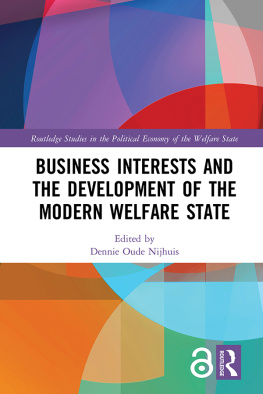
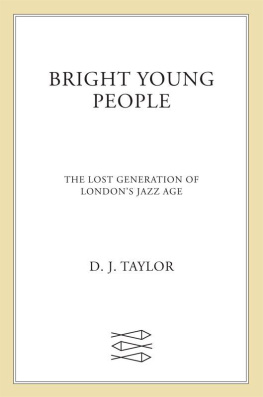

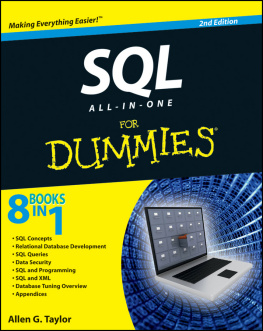
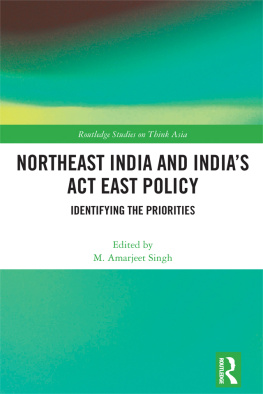
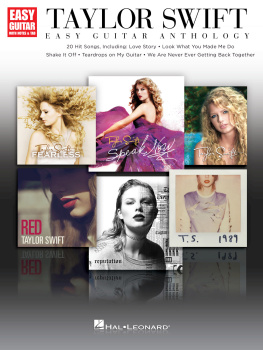

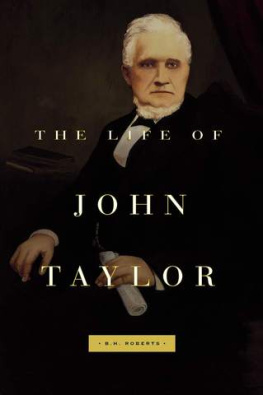
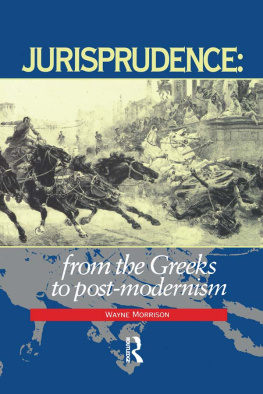
![T.L. Taylor [T.L. Taylor] - Watch Me Play](/uploads/posts/book/131712/thumbs/t-l-taylor-t-l-taylor-watch-me-play.jpg)

